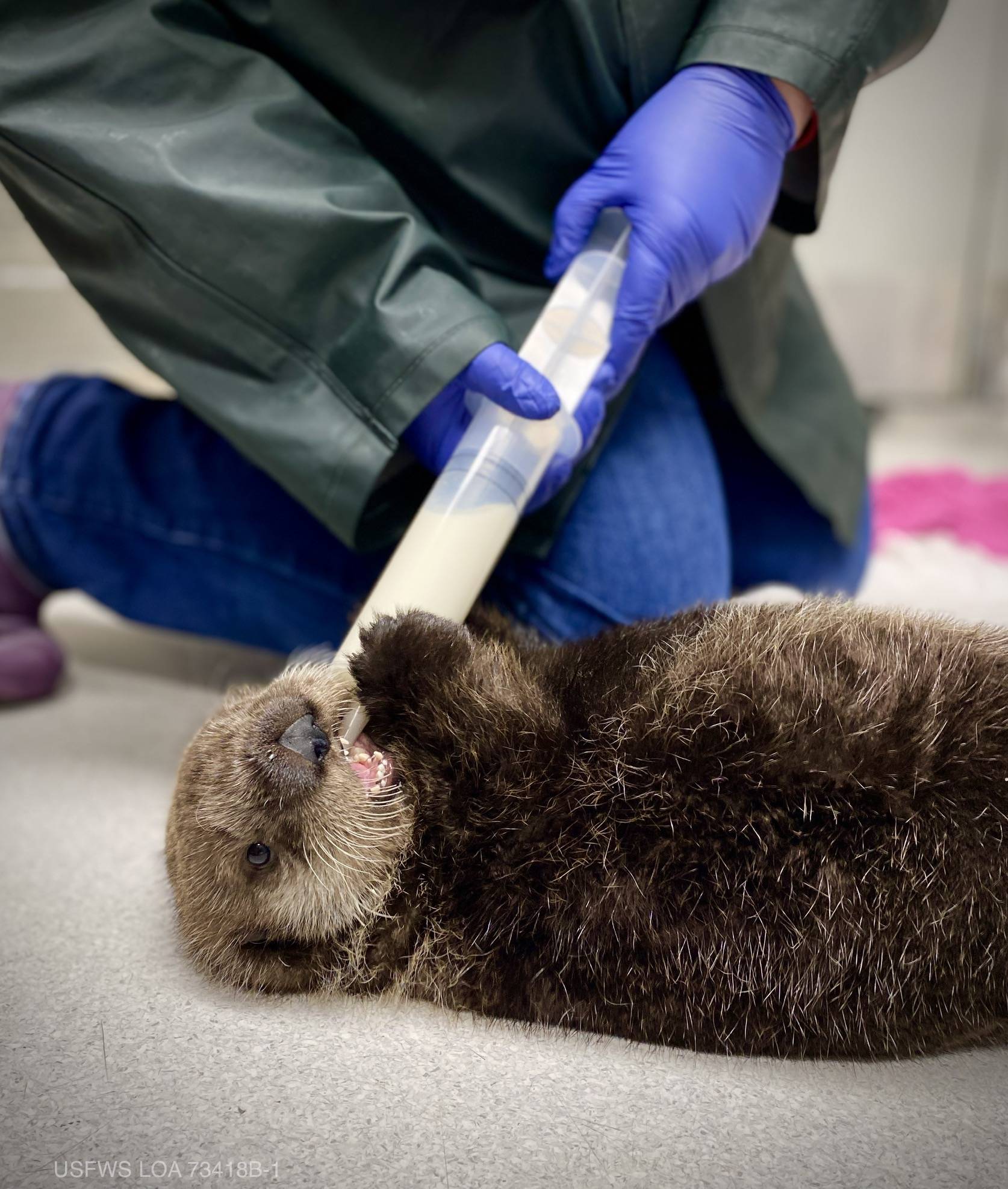Two sea otter pups being treated at the Alaska SeaLife Center in Seward have become fast friends during their recovery, according to a Jan. 8 press release from the center.
Juniper, a female sea otter pup who is about 2 months old, is the latest addition to the Center’s Wildlife Response Program and was admitted on Dec. 12. After spending several days in intensive care, Juniper bonded with Pushki, a male sea otter who is close in age and was rescued from Homer in November.
“The pups were initially curious about one another and vocalized back and forth for quite some time,” Wildlife Response Curator Jane Belovarac said in the press release. “We watched them play, swim and groom each other, which are all behaviors that we like to see during a sea otter introduction.”
Eventually, Juniper and Pushki will be introduced to Lupine, the oldest otter pup at the SeaLife Center, who was rescued in July of last year. Once all three are together for the long term, they will still require 24/7 care from center’s staff until they are about 6 months old.
Juniper was found stranded on a beach in Anchor Point with a bald eagle scavenging the remains of an adult otter beside her. The adult is assumed to be Juniper’s mom, but there was no way to confirm, according to the SeaLife Center’s press release. Because the bird of prey was so close, center volunteers acted quickly to transport Juniper to Seward after receiving permission from the U.S. Fish and Wildlife Service.
Juniper weighed about 11 pounds upon arrival, was covered in dirt and considered to be in critical condition. The veterinary team at the SeaLife Center also found organic debris in her feces, suggesting that she had been eating plant life on the beach where she was stranded. This kind of beach foliage is not part of a sea otter’s typical diet — which consists of mainly shellfish and marine invertebrates, according to the SeaLife Center’s website — so the Wildlife Response team also had concerns about Juniper’s digestive system.
“Sea otters have a very sensitive gastrointestinal tract which can quickly become inflamed, leading to a life threatening situation,” SeaLife Center veterinarian Dr. Elizabeth deCastro said in the press release. “In addition to fluids, we gave her medications to combat the inflammation and promote healing.”
Juniper has now “stabilized and brightened,” but the veterinary team will continue to monitor her health.
Reach reporter Brian Mazurek at bmazurek@peninsulaclarion.com.

